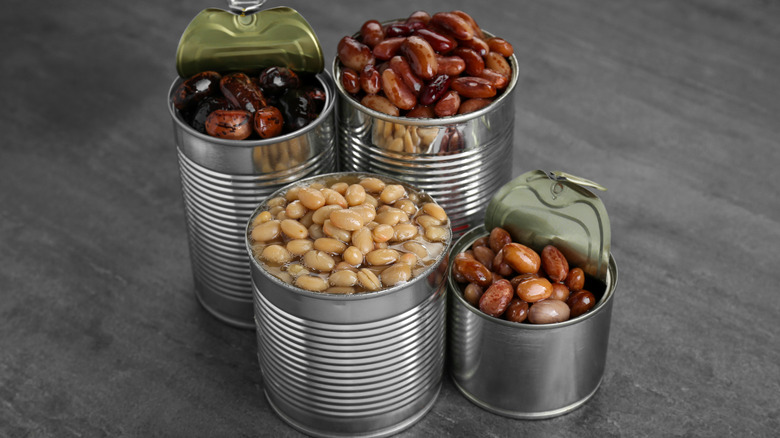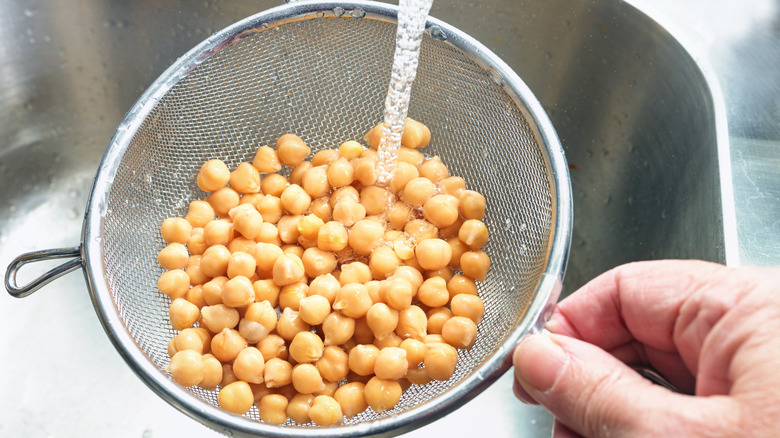The Biggest Mistake Everyone Makes When Cooking With Canned Beans
Considering that some dried beans need to soak for 12 hours before hitting the stove, cooking with canned beans can be an incredible time saver. Because the canning process requires high heat, canned beans come already cooked and ready to use. You can essentially open a can of beans and add them to a dish without any additional preparation. But when faced with all that viscous bean-flavored liquid lingering inside the can, the age old question emerges: To rinse, or not to rinse?
Whether rinsing is an error depends entirely on what you're making. That liquid is composed of water, salt, and starch. With soups and sauces, incorporating the bean juice can actually add flavor and thickness to a dish. You can imagine how the taste is enhanced in chili or red beans and rice when the bean juice is used, too. Losing out on that flavor is the biggest mistake you can make! However, when something like pasta salad or salsa is on the menu, draining and rinsing the beans becomes necessary. Not only does the excess liquid turn less-saucy dishes into too-wet messes, but the soluble fiber that forms a goo-like consistency around the beans can make the texture less desirable.
Consider the salt content
Taste, texture, and presentation are all important to consider when deciding whether or not to drain and rinse your canned beans. However, there's one other thing folks watching their sodium intake might also want to think about. One of the cons of cooking with canned beans is that they contain a substantial amount of salt. With about as much sodium in a half cup of canned beans as there is in a serving of potato chips, using the bean juice may not be ideal for those with sodium restrictions. In this case, draining and rinsing the beans can be an effective solution. While simply removing the beans from the liquid cuts the sodium by more than a third, it's reduced by 41% when the beans are drained and subsequently rinsed.
If you don't have any health issues that require you to monitor your sodium levels, the liquid is perfectly safe to eat — full salt and all. (Just remember to season accordingly!) As a matter of fact, the bean juice can actually be good for you. Some of those B vitamins and folates that make beans so nutritious leech into the water during the canning process. Keeping the juice means keeping all that good stuff.

